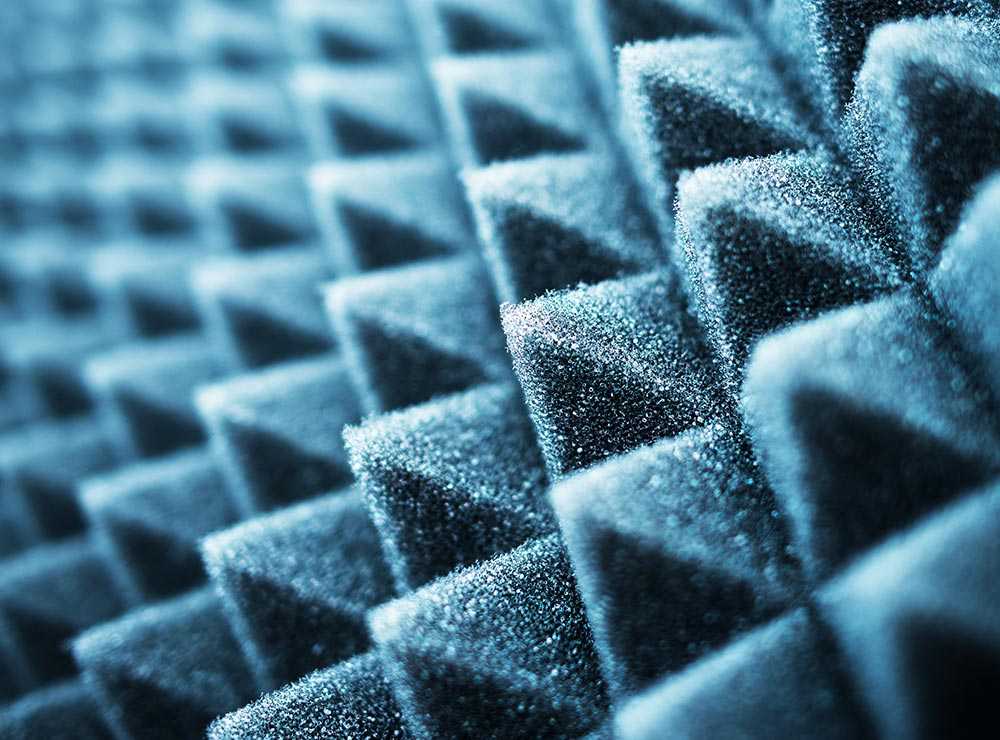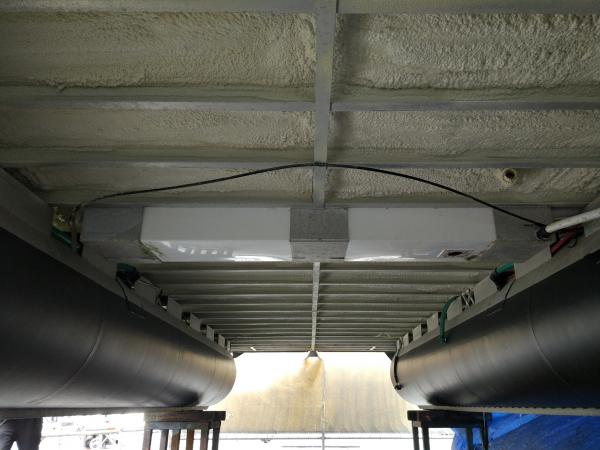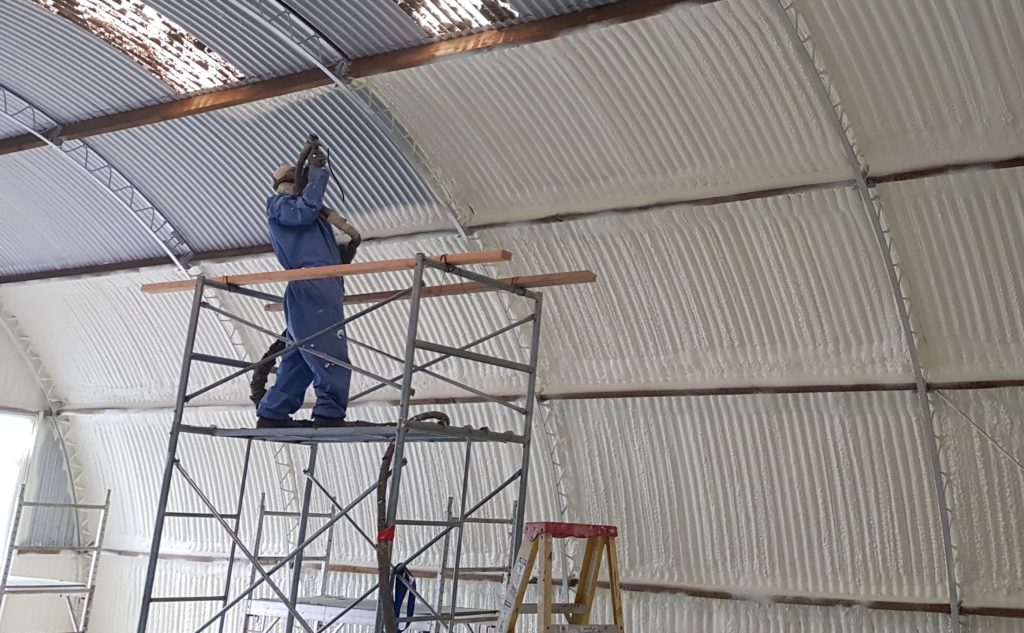The open-cell foam’s ability to absorb sound waves makes it ideal for use in environments where noise reduction is crucial, such as recording studios, movie theatres, and conference rooms. Additionally, open-cell foam is lightweight and easy to install – making it a cost-effective solution for soundproofing large areas.
If you’re looking to reduce noise in your home or building, get in touch with NZAS today
Minimise Noise with Open-Cell Acoustic Insulation
One of the benefits of open-cell foam is that it is a breathable material, allowing air to pass through it, which can help prevent moisture buildup and subsequent problems such as mould growth. As well as noise/soundproofing, these products also provide thermal insulation, helping to reduce energy costs by keeping the building warm in the winter and cool in the summer.
A popular choice for insulation applications where both thermal and acoustic insulation is required, open-cell polyurethane spray foam has a lower density than closed-cell foam – making it more flexible and adaptable for use in hard-to-reach areas. It also has a lower R-value, which means that it is less effective at insulating against heat transfer, however, this can be advantageous in situations where moisture control and breathability are important factors.
Open-cell polyurethane spray foam is an excellent choice for sound-dampening insulation due to its superior ability to absorb sound waves, lightweight nature, ease of installation, and added benefits of thermal insulation and moisture resistance.
Its environmentally friendly nature makes open-cell polyutherane sound insulation an excellent choice for your soundproofing solution. Unlike traditional insulation materials, open-cell spray foam is manufactured using water as a blowing agent, eliminating the use of harmful ozone-depleting chemicals.
Additionally, the foam has a low global warming potential, meaning that it has a much smaller impact on the environment than other soundproofing insulation options.
Overall, open-cell polyurethane spray foam is a versatile and cost-effective solution for sound-dampening needs. Its unique properties make it an ideal choice for retrofitting existing buildings, as well as new construction projects, and it can help to create more comfortable and productive living and working environments.
Open-Cell Spray for Thermal Insulation
Open-cell polyurethane spray foam is an excellent choice for thermal insulation because of its unique properties. The foam has a high resistance to heat flow, which is measured in R-value. Although open-cell foam has a lower R-value than closed-cell foam, it still provides a significant amount of thermal insulation.
One of the key benefits of open-cell foam is that it is highly effective at reducing air leakage, which is a significant cause of heat loss in buildings. The foam expands to fill gaps and voids in walls, ceilings, and floors, creating a continuous thermal barrier, preventing cold air from entering and warm air from escaping, which can help to reduce energy bills and increase indoor comfort.
Open-cell polyurethane spray foam is also an excellent choice for buildings with irregular shapes or hard-to-reach areas, such as attics and crawl spaces. The foam can be sprayed directly onto the surface – creating a seamless insulation layer that conforms to any shape or size. This makes it ideal for retrofitting existing buildings, as well as for new construction projects.
Another advantage of open-cell foam is that it is moisture-resistant, which is important for preventing mould and mildew growth in buildings. The foam is permeable to water vapour, allowing moisture to escape and reducing the risk of condensation buildup.
Open-cell polyurethane spray foam is a versatile and effective insulation solution for a wide range of applications. Its high resistance to heat flow, air sealing properties, and moisture resistance make it an excellent choice for thermal insulation in buildings.
Product Description
Similar to the closed-cell foam we use for insulation, our open-cell foam is sprayed directly onto the surface and has a strong bond to many different substrates. This bond provides a key advantage over conventional types of insulation with regard to its noise/sound dampening capabilities – it provides an air-impermeable acoustic barrier that seals up cracks and cavities in the substrate.
The millions of semi-rigid open cells allow low-density spray foams to absorb sound waves at various frequencies, providing an excellent sound-absorbing, acoustic barrier.
Keeping Kiwi Homes and Buildings Warm and Quiet
At New Zealand Application Service, we take pride in offering the best insulation solutions to our clients. We have a fantastic range of products in stock that we are certified applicators for – suitable for soundproofing, acting as acoustic/noise barriers, as well as thermal insulation products.



